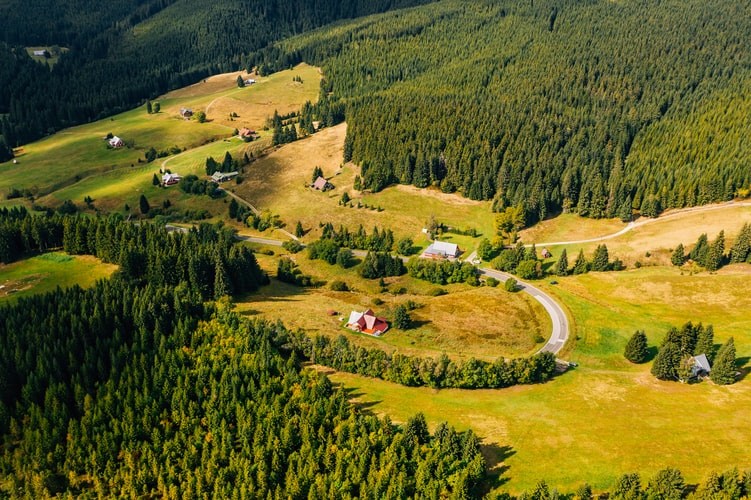Two parliamentary committees adopted on Friday a report on the European Commission’s Farm to Fork strategy calling for setting targets for emissions from agriculture and related land use, strengthening animal welfare and shifting consumption towards more healthy diets in the EU.
The decision, adopted by the Environment, Public Health & Food Safety and Agriculture Committees by 94 votes to 20 and 10 abstentions, follows the provisional agreement last June between the European Parliament, Council and Commission on the Common Agricultural Policy (CAP) aiming at a fairer, greener, more animal friendly and flexible policy with higher climate ambitions.
“The new CAP must be more ambitious regarding climate action, both mitigation and adaptation,” a Commission source said then. However, no specific climate targets were set for agriculture because they have been covered by national reduction targets and, in the European Green Deal, will be part of the emission targets for the whole EU economy.
According to the Commission, member states will have to describe in their CAP Strategic plans how their ‘green architecture’ will allow the objectives and targets set at EU level to be reached, using the instruments available at EU level.
In the decision, the two committees stressed the need to reduce greenhouse-gas emissions, restore natural carbon sinks and reduce agricultural emissions of carbon dioxide, methane and nitrous oxide in order to contribute to the EU’s commitment to the Paris Agreement.
They therefore call for “appropriate and tailored regulatory measures and targets for emissions from agriculture and related land use as part of the ‘Fit for 55’ package to ensure ambitious reductions in all GHG emissions in these sectors”.
According to a new report - Meat Atlas 2021 on meat consumption, world trade and EU policies - the biggest meat and dairy firms emit more greenhouse gas than Germany, Britain or France. The report was jointly published by Heinrich Böll Stiftung, Friends of the Earth Europe and Bund für Umwelt und Naturschutz.
There is also a need for enhanced sustainability in all stages of the food chain and everyone from farmer to consumer has a role to play, they say. A shift in consumption towards more healthy diets is needed. Overconsumption of meat and highly processed foods with high salt, sugar and fat content must be addressed.
“Most Europeans’ diets are not in line with recommendations for healthy eating ... a population-wide shift in consumption patterns is needed towards more healthy foods, diets and lifestyles, including increased consumption of sustainably and regionally produced plants and plant-based foods, such as fresh fruits and vegetables, whole grains and legumes.”
Related to that is what the resolution calls protein transition. It considers that “Further development and sustainable innovation in the field of plant protein production and alternative sources of protein in the EU, such as insects or algae, is a way of effectively addressing many of the environmental and climate challenges that EU agriculture.”
The committees also call on the Commission to present an “EU protein transition strategy covering the demand and the supply side to support and boost the sustainable production of protein crops, including local supplies of feedstuffs and food production”.
As regards animal welfare, the committees repeat their demand on the European Commission to put forward a proposal to phase-out the use of cages in EU animal farming, “assessing a possible phasing-out by 2027”. They add that, unless animal production standards in non-EU countries are aligned with those of the EU, imports of animal products from these countries should not be allowed.
In fact, the Commission has already committed itself to put forward a legislative proposal by 2023 to prohibit the use of cages for millions of farmed animals. The decision was announced last June in a response to the European Citizens’ Initiative (ECI) “End the Cage Age”. The Initiative was supported by ca 1.4 million citizens across all EU member states.
A public consultation will be carried out at the latest by early 2022. The Commission will assess the feasibility of working towards the proposed legislation entering into force from 2027.
“I strongly welcome the call by these two important committees for the need to transition to more plant-rich diets, as well as to improve animal welfare,” commented Olga Kikou, Head of Compassion in World Farming EU. The NGO was active in the campaign for ending the use of cages in animal farming.
Following the vote, Herbert Dorfman (EPP, IT), rapporteur for the Committee on Agriculture and Rural Development, said: “Farmers can play a significant role in the fight against climate change but responsibility for a more sustainable agricultural must be a joint effort where also consumers have a key role to play”.
“Farmers in Europe are already doing a great job so when we rightly ask them to further reduce their use of pesticides, fertilisers and antibiotics, we need to support them to ensure economic viability so production is not just moved outside the EU. Ensuring availability of food at reasonable prices must continue to be a priority.”
The report on the Farm to Fork strategy is expected to be debated and voted during one of the plenary sessions in October.
M. Apelblat
The Brussels Times

